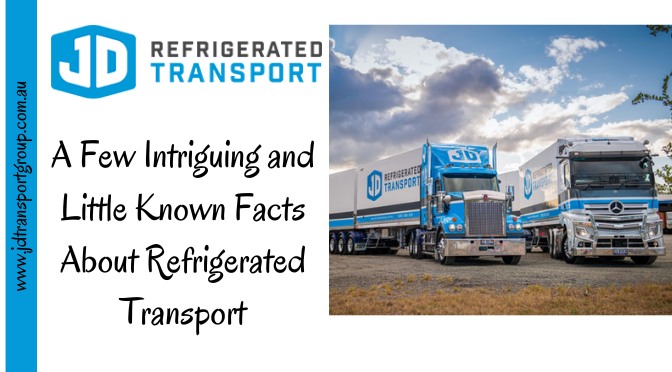Over time, the demand for cold storage in Brisbane has become higher, and businesses are starting to feel the pressure!
From pharmaceutical companies to supermarkets, maintaining product freshness and integrity heavily relies on how strong their network of cold logistics in Brisbane is. But a growing shortage of reliable facilities is a serious concern!
This change has begun creating disruptions in industries and for consumers, making businesses wonder what they should do next to address the crises.
Understand the Growing Demand for Cold Storage Facilities
The rise in e-commerce, perishable exports, and online grocery deliveries has increased the demand for cold storage in Brisbane – dramatically. If you’re a business dealing with frozen goods, it’s high time for you to find more space and efficiency to achieve success in your domain. However, many logistics hubs and warehouses are now finding it extremely difficult to keep up, resulting in longer turnaround times and inflated prices.
Furthermore, population growth and a surge in temperature-sensitive industries have also come to notice, which has significantly escalated the pressure on cold logistics in Brisbane, making supply chain management more complex to handle.
What’s the Reason Behind the Cold Storage Shortage?
While businesses are heavily demanding cold storage in Brisbane, its growing shortage is creating huge pressure on them. A lot of serious factors are influencing this, including:
- Inadequate Infrastructure: Ageing existing storage facilities and a major lack of modern temperature-controlled warehousing capabilities.
- High Operational Costs: Proper temperature maintenance demanding energy-efficient equipment that requires a whopping premium.
- Surge in Frozen Food Logistics: The sharp rise of ice creams, ready-to-eat meals, and other perishables resulting in stretched storage limits.
- Post-Pandemic Consumption Patterns: The shift towards online grocery shopping and home delivery reducing the need for cold logistics in Brisbane.
Through this, many vulnerabilities in Brisbane’s cold chain compliance have been exposed, but businesses must find a way to address them all in order to meet strict quality and safety standards.
How the Cold Storage Shortage Has Affected Businesses and Consumers
With the growing scarcity of cold storage in Brisbane, businesses and consumers have faced serious consequences. Some of them are:
- Higher Costs: Cold storage rental rates pushed up due to limited availability, affecting product pricing negatively.
- Delayed Deliveries: Slowed down refrigerated trucking schedules and last-mile delivery, keeping no reliability in play.
- Product Spoilage: No timely access to warehousing or refrigerated transport, risking product contamination or spoilage.
- Supply Chain Disruptions: Perishable goods like dairy, meat, and vaccines require uninterrupted cold logistics in Brisbane, and any breakdown can lead to significant losses.
How Should the Industry or Your Business Respond?
To address the cold storage shortage in Brisbane, both private and public businesses should take a proactive approach. Here’s what you should follow:
- Investing in Modern Facilities: Consider developing energy-efficient, temperature-controlled warehousing solutions that meet all market demands with ease.
- Adopting Sustainable Models: Reducing emissions and minimising operational costs by integrating green refrigeration technology.
- Expanding Regional Connectivity: Strengthening frozen food logistics networks to ensure the perfect balance of demand and supply.
- Upgrading Technology: Integrating IoT tracking, smart sensors, and automation for the optimisation of supply chain management.
Final Thoughts
Don’t limit yourself to the steps mentioned above; you can also bring innovations to cold logistics in Brisbane to improve safety and transparency even further. The shortage of cold storage in Brisbane shouldn’t restrict your business’s ability to deliver quality products and maintain regulatory standards; prioritise the necessary modern-era upgrades to gain a competitive edge in the industry.
Let JD Refrigerated Transport Help Make a Difference!
While we at JD Refrigerated Transport are aware of the cold storage shortage and the consequences related to it, we go above and beyond to make a difference and help businesses thrive. Call us today at 1300 588 022 to book a service and find out how our team can help!
Frequently Asked Questions
Do you offer customised storage plans based on business size and frequency?
Yes, we design flexible storage solutions that fit both small suppliers and large distributors, allowing you to scale up or down as your needs change.
Can your team handle products with unique or strict temperature requirements?
Absolutely. Our team specialises in managing temperature-sensitive goods, including pharmaceuticals, fresh produce, and speciality frozen items.
How does your facility ensure 24/7 reliability?
We operate with backup power systems, real-time alerts, and on-site engineers to guarantee uninterrupted service, even during unexpected power outages.
Do you assist with the transportation and handling of goods as well?
Yes, we offer end-to-end logistics support, including transport coordination, handling, and seamless delivery from storage to destination.
How do you ensure compliance with health and safety regulations?
Our operations strictly follow national safety standards, with regular audits and hygiene inspections to maintain premium storage conditions.
Can I track my inventory in real time while it’s stored at your facility?
Yes, clients get access to a digital tracking portal where they can monitor temperature logs, stock levels, and delivery schedules at any time.
What kind of industries typically use your services?
We support a wide range of industries - from hospitality and agriculture to pharmaceuticals and retail - ensuring all perishable goods remain fresh and compliant.
Do you offer assistance for businesses transitioning from older storage systems?
Definitely. We help with planning, transfer logistics, and setup to ensure a smooth transition without any operational downtime.
How do you reduce energy costs while maintaining cooling efficiency?
Our facilities use energy-efficient cooling systems and smart insulation designs to reduce operational costs without compromising on performance.











